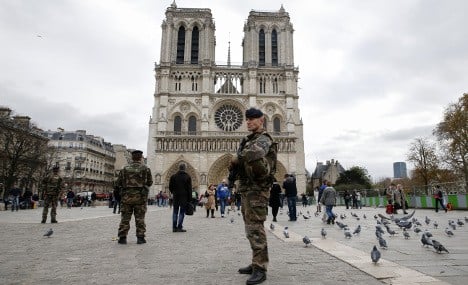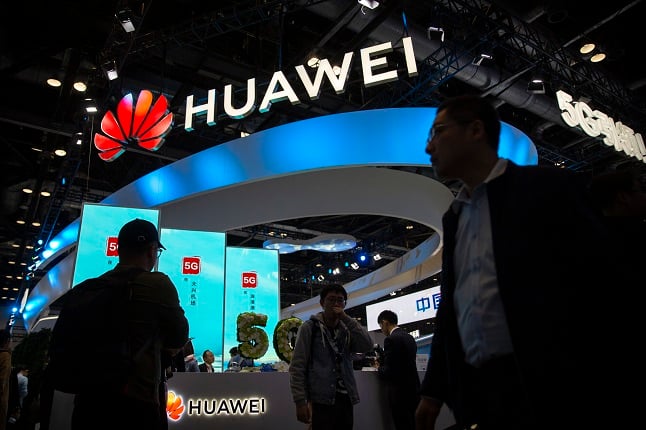Heavily armed soldiers patrolled outside the iconic Galeries Lafayette and Printemps department stores in the city centre, still doing a brisk last-minute Christmas trade but notably less crowded than usual.
“It's a lot quieter,” said taxi driver Belkassem. “I feel bad for the hotels and restaurants because there are a lot fewer tourists in town this year and this is a crucial time of year for them.”
The famous “bateaux-mouches” boats that carry millions of tourists each year along the Seine have reported a 15-30 percent drop in business since the attacks of November 13, which left 130 dead and hundreds injured.
It is not only France that is feeling the tension this festive season.
Christians around the world are bracing for potential attacks at a symbolic time of year — even in China where the US and British embassies warned of possible violence against Westerners in Beijing.
But Paris — the world's most-visited city — has naturally taken the worst blow in the wake of last month's attacks, with flight reservations down nearly a third compared with a year earlier.
Tourist guide Cecile Reverdy, who translates mostly for Chinese visitors, described a massive fall in business from some countries.
“There are around 30 percent less Chinese — only 30 percent because the Chinese are pretty daring,” she told French television.
“But for other languages, in Japanese or American, there is a drop of practically 80 percent.”
Paris Mayor Anne Hidalgo has sought to reassure visitors and put a brave face on the economic damage.
“Of course there are worries and we will never forget the victims, but activity is restarting,” she said recently.
Heightened church security –
The government has warned that Christmas church services “could constitute targets of exceptional symbolic force”.
Unprecedented security checks have been put in place at many of France's 50,000 churches, with bags checked and visitors asked to open their coats to check for guns or explosive vests.
At Strasbourg cathedral in eastern France, a military contingent was set to guard the Christmas midnight mass, where attendance will be strictly limited and the doors locked once the service starts.
France only narrowly escaped a church attack earlier this year, when a 24-year-old Algerian, Sid Ahmed Ghlam, accidentally shot himself in the leg.
Police discovered an arsenal of weapons, tactical gear and jihadist documents in Ghlam's car and student flat, as well as detailed plans to attack churches in the Paris suburb of Villejuif.
But the atmosphere of fear could nonetheless boost attendance.
“The Sundays after the attacks of November 13, we saw more people in our churches. People had a need to look inwards, to reflect on life and society,” said Olivier Ribadeau Dumas, spokesman for the Conference of French Bishops.



 Please whitelist us to continue reading.
Please whitelist us to continue reading.